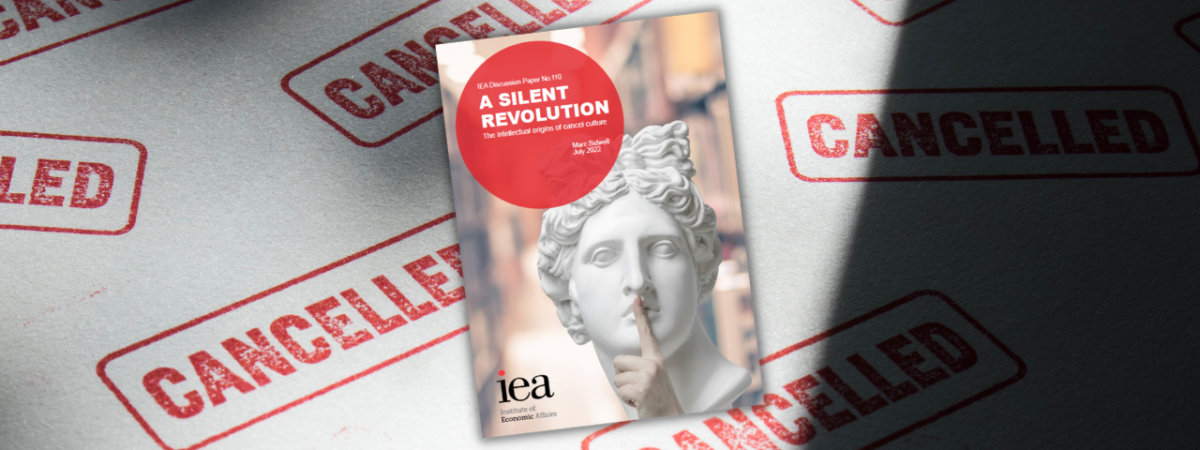Why the government’s “Net Zero” targets are a huge own goal
SUGGESTED


While FotE claimed this as a major victory, the government tried to shrug it off as a technicality that simply means ministers will need to review the policy and take relevant decisions in a different way, using some different data. This is probably correct in practice, although substantive work will need to be done to ensure that credible timescales and risk weightings are attached to the strategy.
It does not set any new legal precedent, but the case provided useful insights into the Net Zero Strategy and the way that the binding commitments in the Climate Change Act play out in practice. This should be sounding alarm bells for ministers in departments affected by climate change policies and others that have been made subject to legally binding targets, most notably perhaps Department for Environment, Food and Rural Affairs (DEFRA) in the Environment Act 2021.
How do legally binding targets work?
While it’s common to talk about the target of net zero carbon emissions by 2050 under the CCA as legally binding, in practice the target itself is not strictly binding. Rather, the legislation imposes obligations on ministers to formulate and report on policies with a view to achieving the specified targets.
In the case of the Climate Change Act, sections 1-10 set out what the target is, and rolling budget periods for stage emission reductions to meet it. Since 2019 the target has been to reduce net carbon emissions by 100% of the total – colloquially known as ‘Net Zero’. Sections 13 and 14 (which were the key obligations in the FotE challenge) require the Secretary of State to:
‘prepare such proposals and policies as the Secretary of State considers will enable the carbon budgets that have been set under this Act to be met’;
and
‘lay before Parliament a report setting out proposals and policies for meeting the carbon budgets for the current and future budgetary periods up to and including that period […] [setting out in particular] (a)the Secretary of State’s current proposals and policies […] and (b) the time-scales over which those proposals and policies are expected to take effect.’
The responsibilities under the CCA fall to the Department for Business, Energy and Industrial Strategy (BEIS). BEIS sought to fulfil the section 13 and 14 duties for the current target with its Net Zero Strategy, published in 2021.
What was found in the FotE case
FotE and Client Earth claimed that the policies and proposals set out in the Net Zero Strategy did not meet the requirements of ss.13 and 14 of the CCA.
These claims were upheld in part. The judge did not accept all of the alleged deficiencies in the Net Zero Strategy (though he did imply some criticism of how the strategy was put together). He found that the minister could not rationally have believed that the Net Zero Strategy would achieve the Net Zero target based on the information presented to him, due to a number of material omissions in the briefings presented to him. The judge also found that the report presented to Parliament was missing key information that was ‘obviously material to the critical issue of risk to the delivery of the statutory targets’.
The Good Law Project also claimed that the Net Zero Strategy violated the Human Rights Act. This claim was dismissed, though the fact that it even proceeded so far and took up government legal resource and court time, to say nothing of the funding of GLP supporters, is perhaps an illustration of why the government wishes to reform the Human Rights Act and judicial review procedure.
What does this mean?
The outcome of the case is only a declaration that the Net Zero Strategy as it stands is not compliant with the law as set out in the CCA. The is not enforceable against ministers but in practice it is expected that the decisions will be taken again with the ministers taking all relevant matters into consideration, and in particular all of the matters that the judge found were missing.
As we head into autumn and winter with energy prices at the forefront of a cost of living crisis, and reliable supply of electricity and gas in doubt, it seems likely that policy commitments that underpin the route to Net Zero will come under pressure. Sunak and Truss have both promised to remove green levies and VAT from consumer energy bills and other costly elements of the Strategy, such as banning ICE vehicles and decarbonising home energy with electric heat pumps must also be in question. Environmental activists and their lawyers will be paying close attention to any further opportunities for legal challenges if the Net Zero Strategy and related commitments are allowed to lapse. Whoever the next Secretary of State is at BEIS should be prepared for a close relationship with their lawyers.
Targets versus trade offs
Legally binding targets and policy obligations have become common. The Environment Act 2021 requires ministers to set targets for air quality, water, biodiversity, resource efficiency and waste reduction. It goes further than the CCA by requiring ministers to ensure that the targets are met, not just put policies in place that they believe will meet the targets. According to DEFRA, the targets ‘allow for objective scrutiny and accountability of government’s progress to society.’ That the government believes this needs to come from judicial oversight is a poor reflection on how the Department views the role of Parliament.
The justification for legally binding targets traditionally has been that long-term policy goals need legal force for credibility with investors who need confidence to invest in infrastructure without worrying that political considerations will cause a change in policy and undermine their investment. And Defra also raises that point. This has always seemed a shaky justification though, as I wrote about in my profile of the Climate Change Committee. It seems more like a way of ensuring the pesky voters (and bill payers) don’t get a say in weighty matters that policymakers think ought to be left to enlightened technocrats and judges.
Tying ministers’ hands with legally binding targets in respect of certain matters is also arbitrary and distorts decision making. The legally binding Net Zero target obliges policymakers to prioritise this objective (which the judge in the FotE case noted was immensely difficult to plan for due to multiple complexities and unknowable variables) over competing priorities, even in unforeseen circumstances such as a global pandemic and war in Europe. It forces decision makers to disregard trade-offs when other matters also demand resources and attention, or when, as in the case of Net Zero, policy goals like productivity or the cost-of-living conflict with the legal target.
There are good reasons why many laudable and important policy objectives are not made legally binding. For example, the Government could set itself a legally binding target to have cures for all cancers available on the NHS by 2050 – an irreproachably important target, that would certainly demand long term commitment from investors. This target would certainly not be met, and as this became more apparent the government would be subjected to legal challenge by drug companies and medical activists seeking government funding for their preferred solutions. Does anyone believe better solutions would be achieved? There would certainly be more drugs and treatments but produced by deflecting resources from other diseases, likely at high cost, possibly to lower standards given the pressure of deadlines. It’s not just a technocrats’ paradise but uses the law to deny that trade-offs exist in government and public policy – a feature of the Net Zero target that is becoming ever more apparent.
1 thought on “Why the government’s “Net Zero” targets are a huge own goal”
Comments are closed.





A government with a large majority, as the present government has, can simply change the legislation and leave the question where it should be, with voters and not with judges.